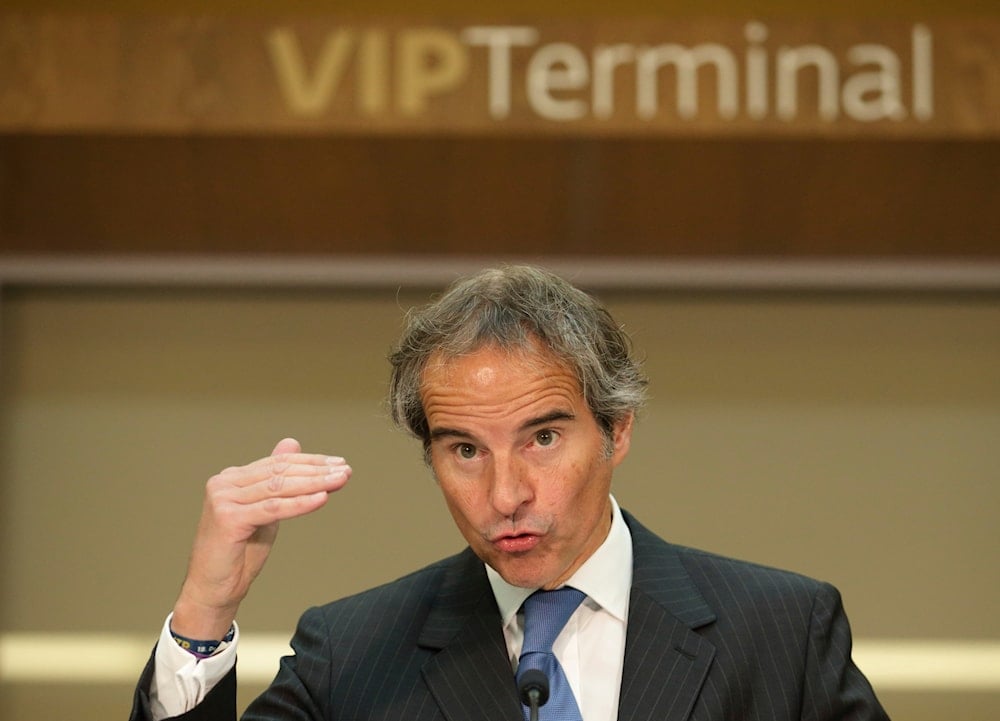IAEA chief skeptical of 'Israel' attacking Iran's nuclear facilities
Rafael Grossi, Director-General of the IAEA, casts doubt on "Israel's" ability to strike Iran's nuclear facilities, citing the scale of Iran's nuclear program.
-

International Atomic Energy Agency (IAEA) Director General, Rafael Grossi, addresses the media after arriving at the Vienna International Airport in Schwechat, Austria, Tuesday, May 7, 2024 (AP)
Rafael Grossi, head of the International Atomic Energy Agency (IAEA), doubted whether "Israel" would actually attack Iran's nuclear facilities.
Grossi explained to the Jerusalem Post that crippling Iran's nuclear program would demand an "enormous and destructive military effort," given how extensive and well-developed it is.
For his part, US President Donald Trump revealed that he had warned Israeli Prime Minister Benjamin Netanyahu against taking any actions that might disrupt the ongoing negotiations with Iran, saying, "I told him that it would be inappropriate to do this now because we are very close to reaching a solution... This could change at any moment."
This development comes amid heightened tensions regarding Iran's nuclear program, after a recent IAEA report claimed that Iran is not complying with its Non-Proliferation Treaty (NPT) and Comprehensive Safeguards Agreement obligations.
Iran ups its condemnation of the West exploiting the IAEA
Earlier on Monday, Iran stepped up its condemnation of the US, France, Britain, and Germany, alleging that they are exploiting the International Atomic Energy Agency (IAEA) for political purposes to pressure Tehran. The sharp criticism coincides with these nations preparing to present an anti-Iran resolution during this week’s IAEA Board of Governors meeting in Vienna.
Iranian Foreign Ministry Spokesperson Baqaei emphasized that the Islamic Republic has fully complied with its obligations under the Non-Proliferation Treaty (NPT) and the Comprehensive Safeguards Agreement, while accusing Western nations of distorting the role of the International Atomic Energy Agency (IAEA) to advance their own geopolitical agendas.
On another note, Rafael Grossi has stated that while the agency has found “some issues” during its inspections, there is no conclusive evidence to indicate the existence of an “unnatural nuclear program” in Iran.
“We found some issues, but there is no conclusive evidence to suggest the existence of an unnatural nuclear program,” Grossi said, adding that the IAEA does not make accusations, but rather investigates based on factual findings. “The claims that Iran's nuclear program is not peaceful cannot be verified. There are no accusations; we are talking about certain reports.”
Grossi acknowledged that while Iran has not provided fully clear answers to all outstanding questions, “there are new elements that did not exist in 2015,” the year the Joint Comprehensive Plan of Action (JCPOA) was signed. However, he declared the JCPOA “tailored for the circumstances at the time,” saying “its time is up” and that the agreement “cannot be revived.”

 3 Min Read
3 Min Read










